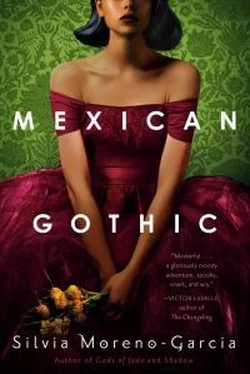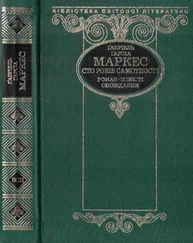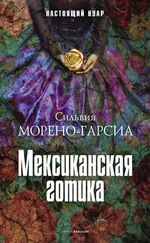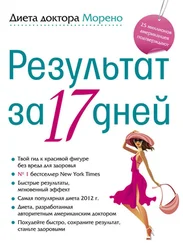Mexican Gothic is a work of fiction. Names, characters, places, and incidents either are products of the author’s imagination or are used fictitiously. Any resemblance to actual persons, living or dead, events, or locales is entirely coincidental.
Copyright © 2020 by Silvia Moreno-Garcia
All rights reserved.
Published in the United States by Del Rey, an imprint of Random House, a division of Penguin Random House LLC, New York.
DEL REY is a registered trademark and the Circle colophon is a trademark of Penguin Random House LLC.
LIBRARY OF CONGRESS CATALOGING-IN-PUBLICATION DATA
Names: Moreno-Garcia, Silvia, author.
Title: Mexican Gothic / Silvia Moreno-Garcia.
Description: New York: Del Rey, [2020]
Identifiers: LCCN 2019048648 (print) | LCCN 2019048649 (ebook) | ISBN 9780525620785 (hardback; alk. paper) | ISBN 9780525620792 (ebook)
Subjects: GSAFD: Gothic fiction.
Classification: LCC PR9199.4.M656174 M49 2020 (print) | LCC PR9199.4.M656174 (ebook) | DDC 813/.6—dc23
LC record available at https://lccn.loc.gov/2019048648
LC ebook record available at https://lccn.loc.gov/2019048649
Ebook ISBN 9780525620792
randomhousebooks.com
Book design by Jen Valero, adapted for ebook
Cover design and illustration: © Faceout Studio/Tim Green, based on images © Getty and © Shutterstock
ep_prh_5.5.0_c0_r0
Contents
Cover
Title Page
Copyright
Chapter 1
Chapter 2
Chapter 3
Chapter 4
Chapter 5
Chapter 6
Chapter 7
Chapter 8
Chapter 9
Chapter 10
Chapter 11
Chapter 12
Chapter 13
Chapter 14
Chapter 15
Chapter 16
Chapter 17
Chapter 18
Chapter 19
Chapter 20
Chapter 21
Chapter 22
Chapter 23
Chapter 24
Chapter 25
Chapter 26
Chapter 27
Dedication
Acknowledgments
Other Titles
About the Author
1
The parties at the Tuñóns’ house always ended unquestionably late, and since the hosts enjoyed costume parties in particular, it was not unusual to see Chinas Poblanas with their folkloric skirts and ribbons in their hair arrive in the company of a harlequin or a cowboy. Their chauffeurs, rather than waiting outside the Tuñóns’ house in vain, had systematized the nights. They would head off to eat tacos at a street stand or even visit a maid who worked in one of the nearby homes, a courtship as delicate as a Victorian melodrama. Some of the chauffeurs would cluster together, sharing cigarettes and stories. A couple took naps. After all, they knew full well that no one was going to abandon that party until after one A.M.
So the couple stepping out of the party at ten P.M. therefore broke convention. What’s worse, the man’s driver had left to fetch himself dinner and could not be found. The young man looked distressed, trying to determine how to proceed. He had worn a papier-mâché horse’s head, a choice that now came back to haunt him as they’d have to make the journey through the city with this cumbersome prop. Noemí had warned him she wanted to win the costume contest, placing ahead of Laura Quezada and her beau, and thus he’d made an effort that now seemed misplaced, since his companion did not dress as she had said she would.
Noemí Taboada had promised she’d rent a jockey outfit, complete with a riding crop. It was supposed to be a clever and slightly scandalous choice, since she’d heard Laura was going to attend as Eve, with a snake wrapped around her neck. In the end, Noemí changed her mind. The jockey costume was ugly and scratched her skin. So instead she wore a green gown with white appliqué flowers and didn’t bother to tell her date about the switch.
“What now?”
“Three blocks from here there’s a big avenue. We can find a taxi there,” she told Hugo. “Say, do you have a cigarette?”
“Cigarette? I don’t even know where I put my wallet,” Hugo replied, palming his jacket with one hand. “Besides, don’t you always carry cigarettes in your purse? I would think you’re cheap and can’t buy your own if I didn’t know any better.”
“It’s so much more fun when a gentleman offers a lady a cigarette.”
“I can’t even offer you a mint tonight. Do you think I might have left my wallet back at the house?”
She did not reply. Hugo was having a difficult time carrying the horse’s head under his arm. He almost dropped it when they reached the avenue. Noemí raised a slender arm and hailed a taxi. Once they were inside the car, Hugo was able to put the horse’s head down on the seat.
“You could have told me I didn’t have to bring this thing after all,” he muttered, noticing the smile on the driver’s face and assuming he was having fun at his expense.
“You look adorable when you’re irritated,” she replied, opening her handbag and finding her cigarettes.
Hugo also looked like a younger Pedro Infante, which was a great deal of his appeal. As for the rest—personality, social status, and intelligence—Noemí had not paused to think too much about all of that. When she wanted something she simply wanted it, and lately she had wanted Hugo, though now that his attention had been procured she was likely to dismiss him.
When they arrived at her house, Hugo reached out to her, grasping her hand.
“Give me a kiss good night.”
“I’ve got to run, but you can still have a bit of my lipstick,” she replied, taking her cigarette and putting it in his mouth.
Hugo leaned out the window and frowned while Noemí hurried into her home, crossing the inner courtyard and going directly to her father’s office. Like the rest of the house, his office was decorated in a modern style, which seemed to echo the newness of the occupants’ money. Noemí’s father had never been poor, but he had turned a small chemical dye business into a fortune. He knew what he liked and he wasn’t afraid to show it: bold colors and clean lines. His chairs were upholstered in a vibrant red, and luxuriant plants added splashes of green to every room.
The door to the office was open, and Noemí did not bother knocking, breezily walking in, her high heels clacking on the hardwood floor. She brushed one of the orchids in her hair with her fingertips and sat down in the chair in front of her father’s desk with a loud sigh, tossing her little handbag on the floor. She also knew what she liked, and she did not like being summoned home early.
Her father had waved her in—those high heels of hers were loud, signaling her arrival as surely as any greeting—but had not looked at her, as he was too busy examining a document.
“I cannot believe you telephoned me at the Tuñóns’,” she said, tugging at her white gloves. “I know you weren’t exactly happy that Hugo—”
“This is not about Hugo,” her father replied, cutting her short.
Noemí frowned. She held one of the gloves in her right hand. “It’s not?”
She had asked for permission to attend the party, but she had not specified she’d go with Hugo Duarte, and she knew how her father felt about him. Father was concerned that Hugo might propose marriage and she’d accept. Noemí did not intend to marry Hugo and had told her parents so, but Father did not believe her.
Noemí, like any good socialite, shopped at the Palacio de Hierro, painted her lips with Elizabeth Arden lipstick, owned a couple of very fine furs, spoke English with remarkable ease, courtesy of the nuns at the Monserrat—a private school, of course—and was expected to devote her time to the twin pursuits of leisure and husband hunting. Therefore, to her father, any pleasant activity must also involve the acquisition of a spouse. That is, she should never have fun for the sake of having fun, but only as a way to obtain a husband. Which would have been fine and well if Father had actually liked Hugo, but Hugo was a mere junior architect, and Noemí was expected to aspire higher.
Читать дальше





![Сильвия Морено-Гарсия - Боги нефрита и тени [litres]](/books/431579/silviya-moreno-garsiya-bogi-nefrita-i-teni-litres-thumb.webp)
![Сильвия Морено-Гарсия - Мексиканская готика [litres]](/books/431998/silviya-moreno-garsiya-meksikanskaya-gotika-litres-thumb.webp)





